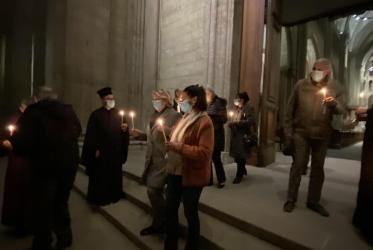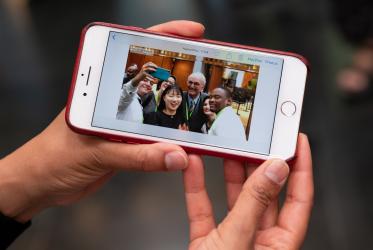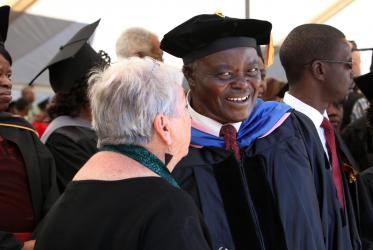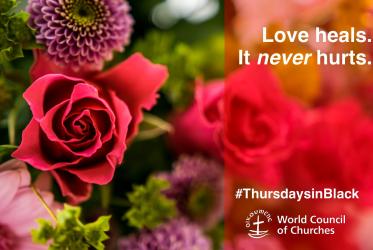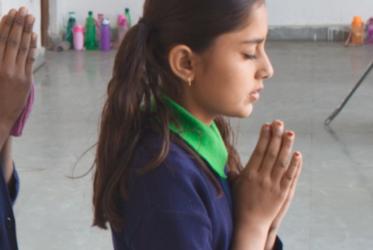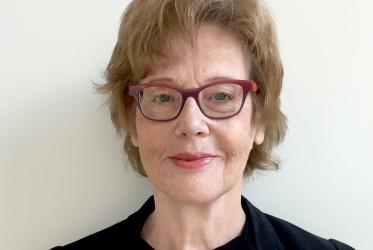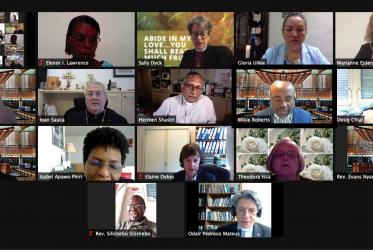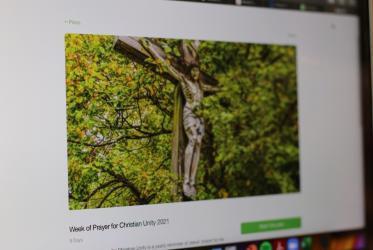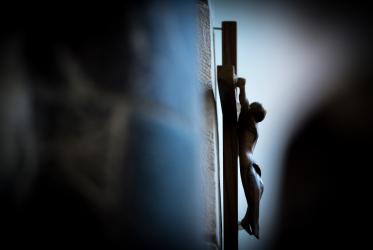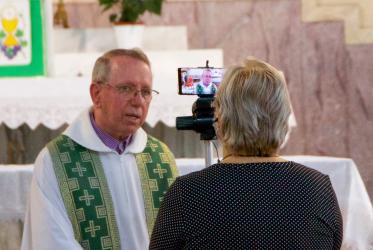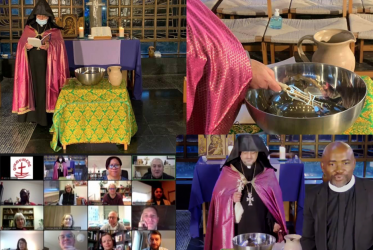Displaying 161 - 180 of 444
24 February 2021
WCC honoured with Geneva Engage Award
18 February 2021
WCC remembers life of Patrick Matsikenyiri, a joyful song leader
15 February 2021
Pray without ceasing!
04 February 2021
Thursdays in Black ambassadors gain momentum for 2021
02 February 2021
In pictures: Week of Prayer for Christian Unity
01 February 2021
WCC to host online prayer for Week of Prayer for Christian Unity
21 January 2021
Week of Prayer: can you picture it?
14 January 2021
Pilgrim Prayer to foster global spiritual solidarity
14 January 2021
WCC podcast deals with death and dying
15 December 2020
